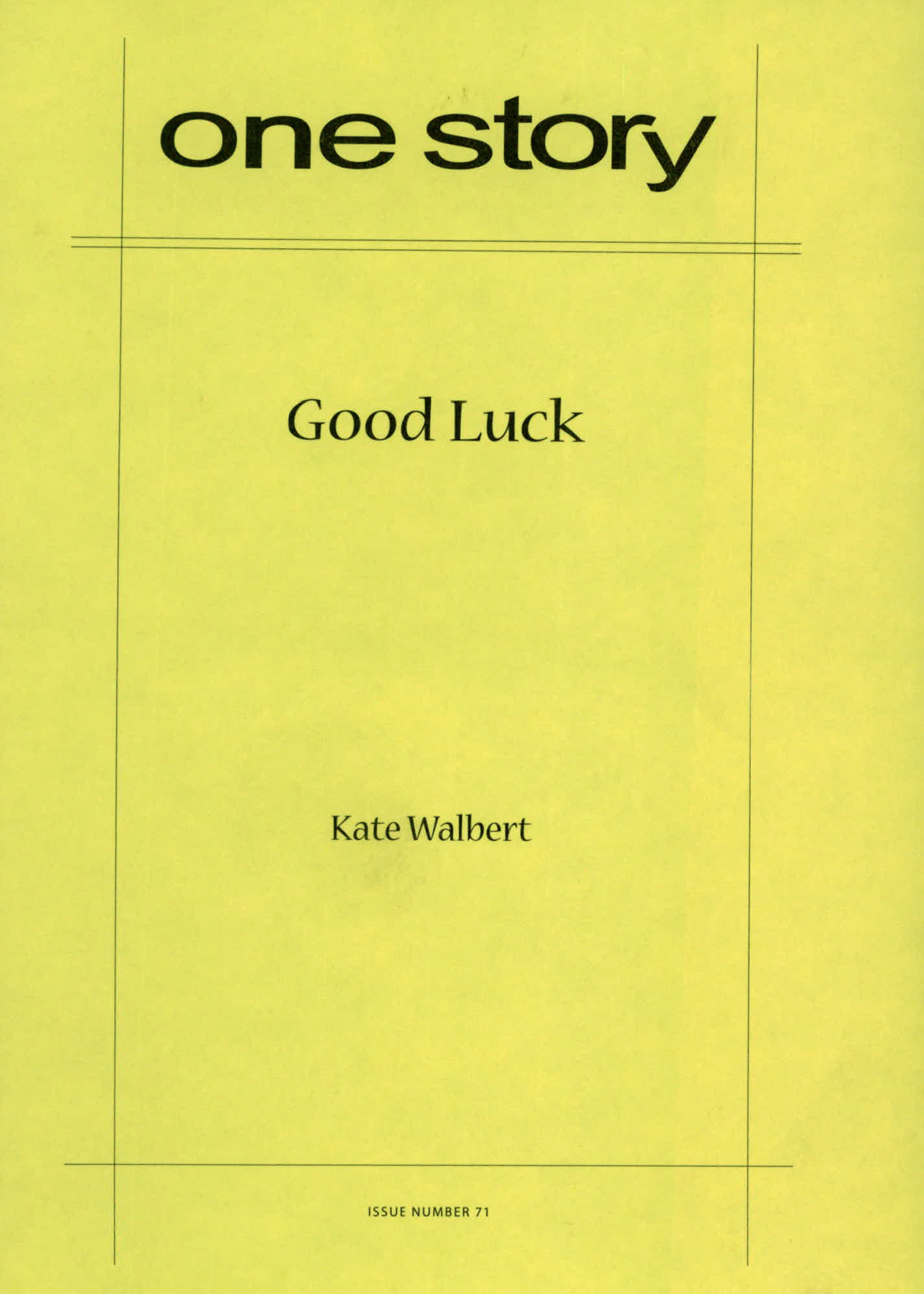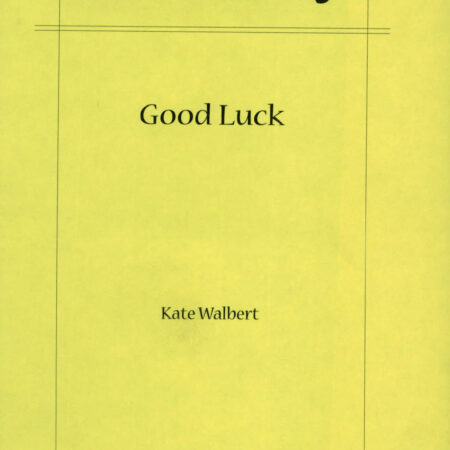
Good Luck
$2.50
39 in stock
Excerpt
And wasn’t it Browning who said, “All’s right with the world; God’s in his heaven-” etcetera, etcetera?
I found myself asking this—rhetorically, ironically—of our little crew in Patagonia, my soon-to-be-ex-wife Evelyn elsewhere, at one of the extracurricular lectures delivered by those among us who feel they have something to add. I have been to several and proposed my own, waiting to see if the requisite number sign the sheet outside the ship’s dining hall before preparing anything in earnest. So far there are three names: my own, Evelyn, and Chester Briggs, a biology teacher from Seattle who made our acquaintance early in the trip. It’s to Chester I address the question now; we sit with a few of the others in the dimly lighted bar of our German hotel, in off the rough seas for a few days respite, the bar’s Alpine theme strange after the endless landscape we have just crossed in our little bus. This time, penguins: great, vast tracks of them. The only bird, we are told, to lack a natural aversion to humans, their minds on other things—the beelines they make to the shore, the care in balancing their dirty eggs. We stooped low to look in their nests, hurried to get out of their paths. Evelyn found one covered “head to flipper”in oil, its mate nosing it along, though the poor thing sank like a stone as soon as it dived into the water.
Kate Walbert
Kate Walbert is the author of Where She Went, The Gardens of Kyoto, and Our Kind, which was a finalist for the 2004 National Book Award. She lives in New York City.
Q&A by Hannah Tinti
- HT: Where did the idea for this story come from?
- KW: Stories always start for me with images: Good Luck began with the image of an older couple on the deck of a ship watching an iceberg divide. I’ve always loved the notion of those trips that are advertised—often in the back of alumni magazines—as educational adventures, and for a long time I’d thought that a long-married couple on one of these excursions might make for interesting fiction. Also, around the time I started working on the story, I bought two books at the Strand in New York which in the end proved important: An Intimate History of Killing, by Joanna Bourke, in which she discusses 20th century warfare and the various ways soldiers (and priests) were taught (and taught others) to think about killing, and Lytton Strachey’s Eminent Victorians, which has a chapter on Florence Nightingale.
- HT: What was the most challenging aspect of writing this story?
- KW: From the earliest drafts, I had a strong sense of Bill, the narrator, bewildered by his sudden abandonment by a wife of many many years, and holding on to the things that had only loosely bound him to his life since the war. I wanted to weave in his story and yet keep the narrative rooted in the excursion to Patagonia. The turning point came when I realized that Evelyn asking for a divorce was not the crux of the story; far more important was her decision to prepare her own “talk” to present to the group, and how this secret initiative would consequently affect Bill.
- HT: Why did you choose to set “Good Luck” in Patagonia? Have you ever been there?
- KW: I traveled to Patagonia years ago with my husband, whose family is from Argentina, and experienced firsthand the spectacle of the icebergs dividing. There’s a crack and then the thing tips, which is extraordinary since it’s so massive, before collapsing into the water; a split second later the divided halves bob up and drift very quietly away. I know it sounds strange, but you can literally stand there for hours, mesmerized.
- HT: How do you maintain the balance between the past and the present, particularly with your use of flashbacks, without one overwhelming the other?
- KW: Well, I hope I’ve achieved that balance; this was the most difficult aspect of the writing for me and for a while I thought the story might be part of a novel. I would still like to write more about Bill’s past, particularly his experience as Good Luck; I’d like to write the story of his rescue from the sea; I’d even like to write Evelyn’s “brief remarks” about Florence Nightingale.
- HT: Why does Evelyn study Florence Nightingale, and Bill obsess over Browning? Did you consciously choose to set these two against one another?
- KW: Browning is entirely serendipitous. Bill’s quoting of the famous line, “All’s right with world/God’s in his heaven,” came out of the blue but immediately felt right, very Bill-ish to me. Then, after reading Strachey’s book, Florence Nightingale seemed the right counterpoint to Bill’s Browning: efficient and starched and practical. She would have had no time for poetry. (I think I also secretly wanted to use the words bloody Crimean garb in a sentence.)
- HT: While editing “Good Luck” with One Story you mentioned that you’d been working on the last paragraph for nearly a year. Can you talk a little about how it changed throughout the revisions? Do you think it’s finally “done”
- KW: Since it was the paragraph that initially opened the story—the image of the two on deck watching the glacier—I knew it contained all the clues to the narrative. I also knew I had to get right the sound and look of that glacier, the suddenness with which everything is changed, the enormity of the feeling, which I can quite vividly recall, of somehow standing at the bottom of the world, or almost. I do feel it’s done now, or at least for the story as it stands today.
- HT: Is there any chance the marriage between Evelyn and Bill could be saved?
- KW: No, definitely not, although they might have a greater friendship now.
- HT: How long did it take you to complete this story?
- KW: Well...I wrote that first (last) paragraph, or the first of the many versions of it, at least four years ago and then worked on the story in fits and starts.
- HT: What is the best bit of advice about writing you have ever received?
- KW: I would say to be reckless, truly reckless, and to always write mindful of how you began your story, yet without ever concluding where the words will take you.
- HT: What are you working on now?
- KW: A novel that, so far, takes place in early twentieth century England and, when that gets too frustrating, a play. I find that more and more I like to have several things in the works at once—and I’ve also always got a story or two at some stage of tinkering. I’m tinkering with everything, really, until I stumble into something that looks like life.
